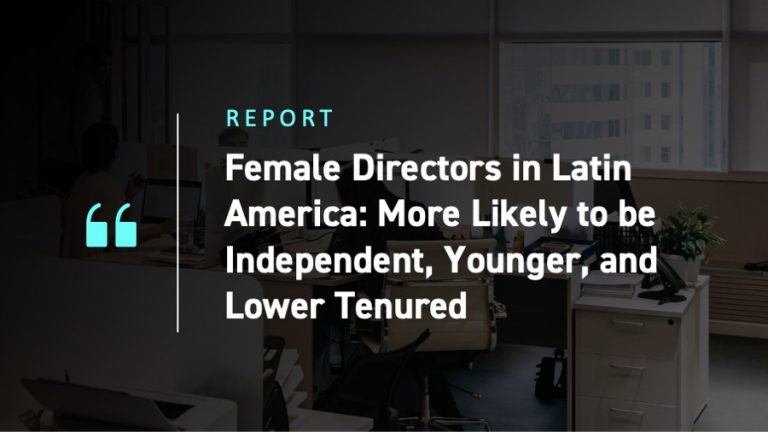The MENA region’s corporate governance regime is rapidly evolving towards improved application of international best practices, reflecting the growing desire to enhance the region’s competitive edge. These new regulations seek to reinforce competitiveness and increase economic growth through improved corporate governance. Saudi Arabia, United Arab Emirates (UAE), Qatar and Morocco all have adopted new Companies Laws, introducing several rules to ensure alignment with each of their respective governments’ economic visions. For Saudi Arabia, UAE and Morocco, recent updates also include revisions to their respective corporate governance codes. Meanwhile, Qatar has made changes to its corporate governance instructions for banks requiring Qatari banks to update their articles of association, organizational structures, and governance practices. These changes to the regulatory landscape underscore the emerging ambition reshaping the region.
The table below highlights regulatory changes in several MENA markets along with the AGM ballot items impacted by these changes:
- Director Remuneration: Saudi Arabia has revised its legal framework whereby annual director remuneration is no longer capped by law. Qatar is now allowing directors to receive remuneration even when the company doesn’t generate any profits. And, the UAE is adding provisions to allow board remuneration in cases where a company incurs losses or generates low profits. Additional details on the regulatory changes in the UAE and Qatar are available here).
- Diversity: UAE and Morocco are introducing new provisions regarding women representation at public boards.
- Related Party Transactions (RPTs): Qatar has introduced a more defined framework for related party transactions.
- Share Issuances: The UAE has authorized the issuance of shares at a discount, while Saudi Arabia is allowing the issuance of different classes of shares.
- Minority Squeeze-out: Saudi Arabia is now permitting squeeze-out rights whereby minority shareholders can be compelled to accept an offer to purchase all company shares upon approval of at least 90 percent of shareholders.
- SPACs/SPVs: The UAE has introduced new forms of corporate vehicles such as Special Purpose Vehicles (SPVs) and Special Purpose Acquisition Companies (SPACs), while Saudi Arabia has new types of companies called Simplified Joint Stock companies.
These revisions have had impacts on the 2022 and 2023 proxy seasons as several companies operating in the aforementioned markets have requested shareholder approval to amend their bylaws and policies accordingly.
| Make with recent regulatory changes | Regulatory Changes | Grace period (if any) | Non-exhaustive list of AGM ballot items impacted /likely to be impacted | Status of issuer compliance |
| Saudi Arabia | The new Companies Law (Arabic) The Law was approved by the council of ministers through Cabinet Resolution No. 678, dated June 28, 2022, which consists of 281 articles. The new Law replaced the previous 2015 Companies Law The amended Corporate Governance Regulations of 2023 (Arabic) | 2 years (beginning January 2023) | – Amendments of bylaws – Director remuneration proposals including remuneration policies. The new law removed the maximum limit of remuneration that a board member can receive per year – Amendments of board charters and policies – Issuance of different classes of shares (such as preferred shares and redeemable shares) – Application of Squeeze-out rights – The new Companies Law also increased the maximum term for directors from three to four years and removed the maximum number of seats that a company may have on its board | Companies started complying with the new Law during the 2023 proxy season |
| Qatar | Companies Law No. 8 of 2021 (Arabic) The Law came into force on September 7, 2021. It introduced significant amendments to certain articles of the Qatar Commercial Companies Law No. 11 of 2015 The 2022 amended CG Instructions for Banks (English) These instructions amended the Corporate Governance Principles for Banks issued by QCB Circular No. 67 of 2015 | No Information | – Amendments of bylaws – RPTs (new provisions added in the Companies Law on RPTs and the need for general shareholder meeting approval if the RTPs represent 10% or more of the market value/net asset value of the company, whichever is lower) – Rule change allowing directors to engage in competitive business activities/be involved with other companies (new provisions added in the amended Companies Law requiring approval on such activities) – Director remuneration (if companies fail to earn profits, remunerations are paid out, with general shareholder meeting approvals required on the amounts) – Approvals of new policies (ESG and RPT policies) – Shareholder proposals not likely to be impacted given the scarcity of such proposals (shareholders owning 5% of the capital may request to add agenda items instead of the prior 10% requirement) | Most of companies started complying with the new Law during the 2022 proxy season and continued during the 2023 proxy season. The majority of listed Qatari banks started complying with the amended Corporate Governance instructions during the 2023 proxy season |
| United Arab Emirates | The 2021 Companies Law (English) The Law incorporated most of the amendments introduced under Federal Decree-Law No. 26 from 2020 to the previous 2015 Companies Law Amendments of the Governance Guide for Public-Joint Companies (amendments are unavailable) In June 2022, the Emirati Securities and Commodities Authority announced the opening of a commentary period on a draft decision modifying the governance guide for public-joint companies and invited the relevant parties to review the published draft, available on the ESCA’s website. The commentary period ended on July 27 | Emirati companies were required to comply with the provisions of the 2021 law by Jan. 2, 2023, unless postponed by a decision of the government | – Amendments of bylaws – Director remuneration (remuneration framework revisions according to the new Companies Law) | Most companies started complying with the new Law during the 2022 proxy season and this trend continued during the 2023 proxy season. (No news has been reported regarding the postponement of the initial deadline by the government) A new version of the Emirati corporate governance guide is expected to be published in the coming period which may impact the upcoming 2024 proxy season |
| Morocco | Law No.19-20 of 2021 (French) Morocco has amended the provisions of Law No. 17-95 of 1996 on public companies and Law No. 5-96 on partnerships and limited liability companies New Governance Code of 2022 (draft) (French) | Based on the Law, companies must ensure: . 30% representation of women as of January 1, 2024; and . 40% representation of women as of January 1, 2027 | – Amendments of bylaws – Director election proposals (gender diversity will be required at pubic boards) | Companies started complying with the 2021 Law during the 2022 proxy season and continued during the 2023 proxy season. Further, the final draft of the 2022 governance code was recently published by the “Commission Nationale de Gouvernance d’Entreprise” and it is expected to come into effect in 2024. |
Authored By: Merna Mekhamer, Benchmark Research, ISS Governance




